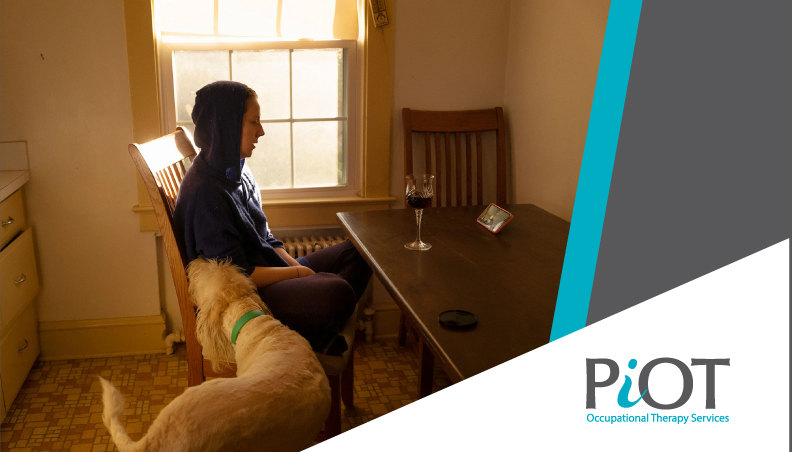
27 Jan One by One
We have had so much to contend with this year. On top of all the usual challenges in our lives, we have had to deal with yet another pandemic and all its challenges, supply chain issues, where we can no longer take for granted the products that we usually have available, and to top it off, many of us are snowbound, dealing with the aftermath of the latest January storms. These can be difficult times, but even more difficult for those who are living alone, either by choice or circumstance.
It is imperative to check in and keep in regular communication with those who are living independently. Their physical, mental and emotional wellbeing can quickly deteriorate if they encounter adverse conditions. It is human nature to not admit your difficulties in coping with day to day activities, some may perceive it as a sign of weakness or a challenge to their independence. Without someone there to regularly observe the real situation, people tend to say that they are managing well, when in fact, they may not be.
Please remember to regularly check in on singles to make sure that their physical needs are being met. Make sure that they have sufficient warmth in their home, as well as basic groceries on hand. Proper nutrition is vital to good health, and when you live alone, it is easy to slide into the ‘tea and toast’ routine, or rely on fast foods that supply little nutrition.
Mental health can also be affected. With pandemic restrictions for gatherings and weather conditions making mobility and transportation risky, it may be difficult for those who depend on community groups and activities for their connections and interactions to cope with being housebound. With their usual channels of contact being severely limited, isolation can become an issue. Group activities that people would attend have been replaced by online activities. This still provides a human connection of sorts, and can provide stimulation and contact with others without actually being in the same location with them. However, certain individuals, particularly elderly people, may not be computer savvy or have the stamina to maintain an online session. Setting up a regular time to visit in person or have a phone call can be a welcome interaction for those who do not have much outside contact.
When you reach out, your language is important to maintain the dignity and independence of the person living alone. Many will insist they are managing well, when in fact, they are not. Speak to them respectfully and specifically. When offering assistance, do not put the burden to ask for help on them, but offer your assistance tactfully. For example, instead of saying ‘let me know if there is anything you need’, you might say ‘I am going to the grocery store this morning, what can I get for you?’ Or, instead of ‘would you like me to do some cooking for you?’ you can say ‘I baked muffins, plenty to share, can I drop some off for you?’ By approaching it in this way, the receiving person does not have to disclose any shortcomings or struggles they may be facing.
If you are experiencing difficulty managing your daily activities, please reach out to your healthcare professional for assistance and resources. Make the effort to be a good neighbour, colleague and friend and keep in touch with all the people you know that are living independently. There is a wide range of living between existing and thriving, and you can be the motivation that people need to encourage self-care.

